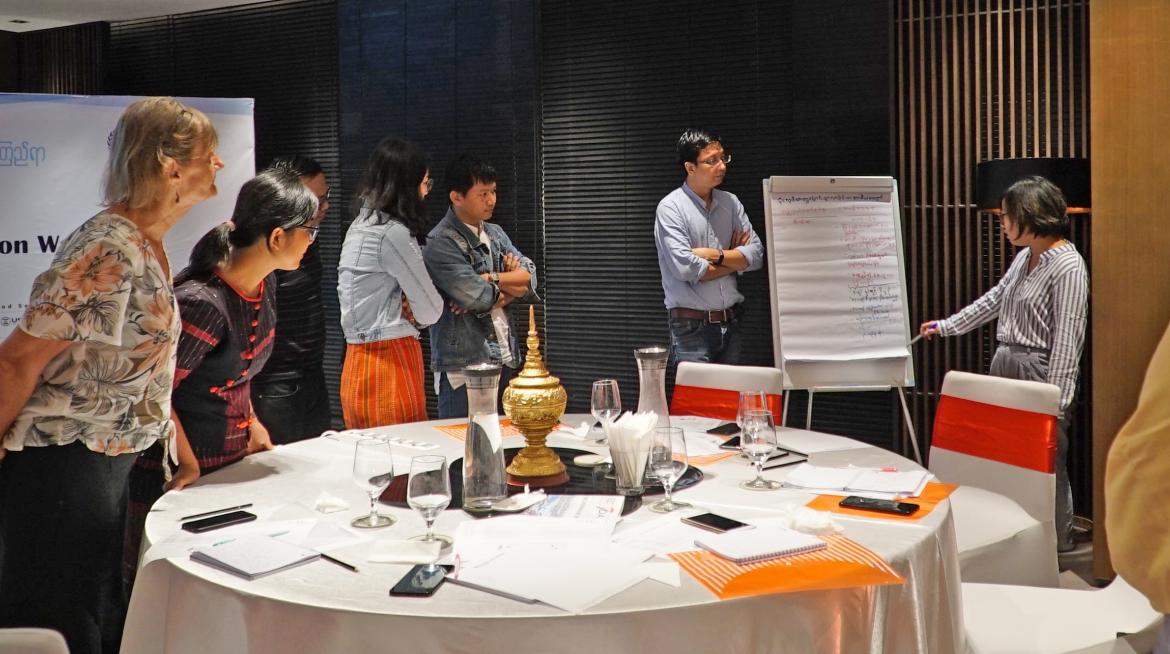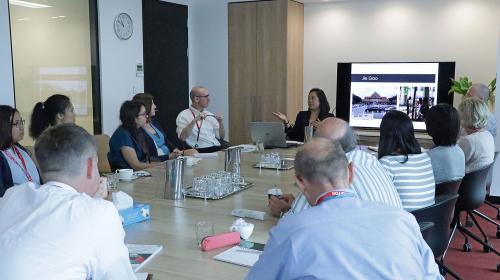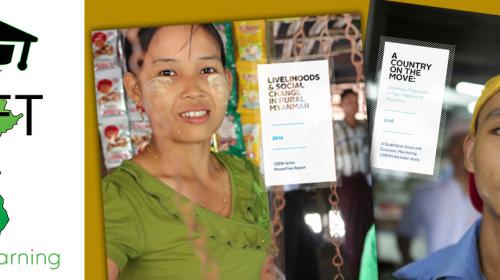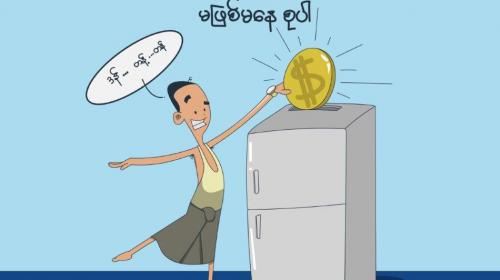
In Myanmar, people thinking of migrating rarely turn to the media for information, as reports of migration are generally one-sided and negative. However, given the large number of people affected by migration, there is a crucial need for the media to deliver more balanced and accurate portrayals of migration issues that will appeal to and inform the public.
On 6-13 September, BBC Media Action in collaboration with the International Labour Organization held a LIFT-funded workshop “Reporting on ASEAN Migration”, welcoming journalists from all over Myanmar. Starting in Yangon, the workshop continued in Bangkok and allowed participants to attend seminars and meet with organisations working on migration, and migrants employed in different industries.
The aim was for participants to improve their understanding of how mechanisms, systems and policies relating to migration work in Myanmar and ASEAN; to understand the roles and responsibilities of migration ‘actors’; and learn how to produce high-quality news pieces on migration with accuracy, integrity and sensitivity.

Understanding different aspects and types of migration
Jackie Pollock, Chief Technical Advisor for Migration Projects at the International Labour Organization (ILO), followed by U Zaw Oo, Executive Director of the Centre for Economic and Social Development (CESD), opened the training on 6 September with introductions to migration in Myanmar.
According to the Myanmar 2014 Population Census, around 4.25 million Myanmar people, or almost 8 per cent of the country’s population, are overseas. It is difficult to estimate how many people leave or return to Myanmar each year due to irregular migration, but it is certain that migration plays a major role in the employment of workers and in supporting the livelihoods of rural people in Myanmar through remittances and the transfer of knowledge and skills. Migration can thus be said to affect most families in Myanmar.
To increase the accuracy of reporting, Ms Pollock explained some migration-specific terminologies and concepts to the participants, such as labour migration, trafficking, smuggling, forced labour and seeking asylum. The participants were then asked to determine the migration status of people in different scenarios. Through this exercise, Ms Pollock demonstrated that although some migration categories are defined clearly in international law, people’s lives are often more complex and their migration motivated by a combination of different factors.

Knowing roles of institutions and organisations
Daw Thet Thet Aung, Director of Future Light Centre and Myanmar Representative for the Mekong Migration Network, spoke later of the different roles and responsibilities of institutions involved in the migration process – for example governments, recruitment agencies and employers. She also shared information on how the governments of the Philippines and Indonesia have led the way in protecting the rights and developing the skills of their overseas migrant workers.
So what should a Myanmar migrant do in order to reduce risks, or in case s/he encounters problems? For safe migration, workers should plan ahead and acquire a basic knowledge of financial management and migration and labour laws, migrate through licenced overseas employment agencies, and understand who to contact if problems occur.
Media coverage can pressure companies and Government to do more for migrants
The participants travelled to Bangkok on 9 September for the second part of the workshop, starting with a look into ASEAN economies and where migration and Myanmar fit in. Presenting on the topic, Debbie Stothard, Coordinator of the Alternative ASEAN Network on Burma and Secretary General of the International Federation for Human Rights, delved into what the media can do to catalyse change and improve conditions for migrants.
For example, stories about international businesses involved in labour rights violations against migrants have led companies to pay more attention to ethical sourcing and contracting practices. At the same time, the media can push the Myanmar Government to do more about abuses committed by recruitment agencies and brokers.
Media coverage of migration in ASEAN often remains one-sided
Johanna Son, Editor and Founder of Reporting ASEAN, talked about ASEAN’s approach to migration and about some of the challenges of reporting migration stories. Today, typical media coverage of migration is often short, focused on negative events, limited to the viewpoints of Government officials, or related to conflicts. Journalists should therefore work to expand perceptions of migration and be able to report on the day-to-day issues that migrants face.

Migration reporting requires sensitivity and a broad understanding of the subject
Closing the seminar on 9 September, Clare Lyons, Media Trainer and Consultant at BBC Media Action, gave advice on how to produce quality journalistic content on migration. Good reporting should include human interest stories, give pertinent analyses of context, be gender sensitive and careful with language and terminology, consider impacts of reports, protect the anonymity of sources whenever necessary, and include information that can be useful for people interested in or affected by migration.
On 10-12 September, participants attended the ASEAN Civil Society Conference/ASEAN People’s Forum in Bangkok to explore wider issues in ASEAN such as human rights, justice, trade, peace and security, migration and decent work.
Good reporting can help change perceptions about migration
Migration affects a large number of people in Myanmar. Therefore, more comprehensive media coverage of migration requires journalists to acquire a thorough knowledge of local and regional issues and of institutions involved in the migration process. In the long term, good reporting can inform people about migration and reduce the risks for migrants, as well as expose companies responsible for abuse to pressure them into applying more ethical practices. It can also help provide a more nuanced understanding of migration through feature stories which are not only about negative impacts, but also migration success stories.
WRITER: Sandra Vedeld





